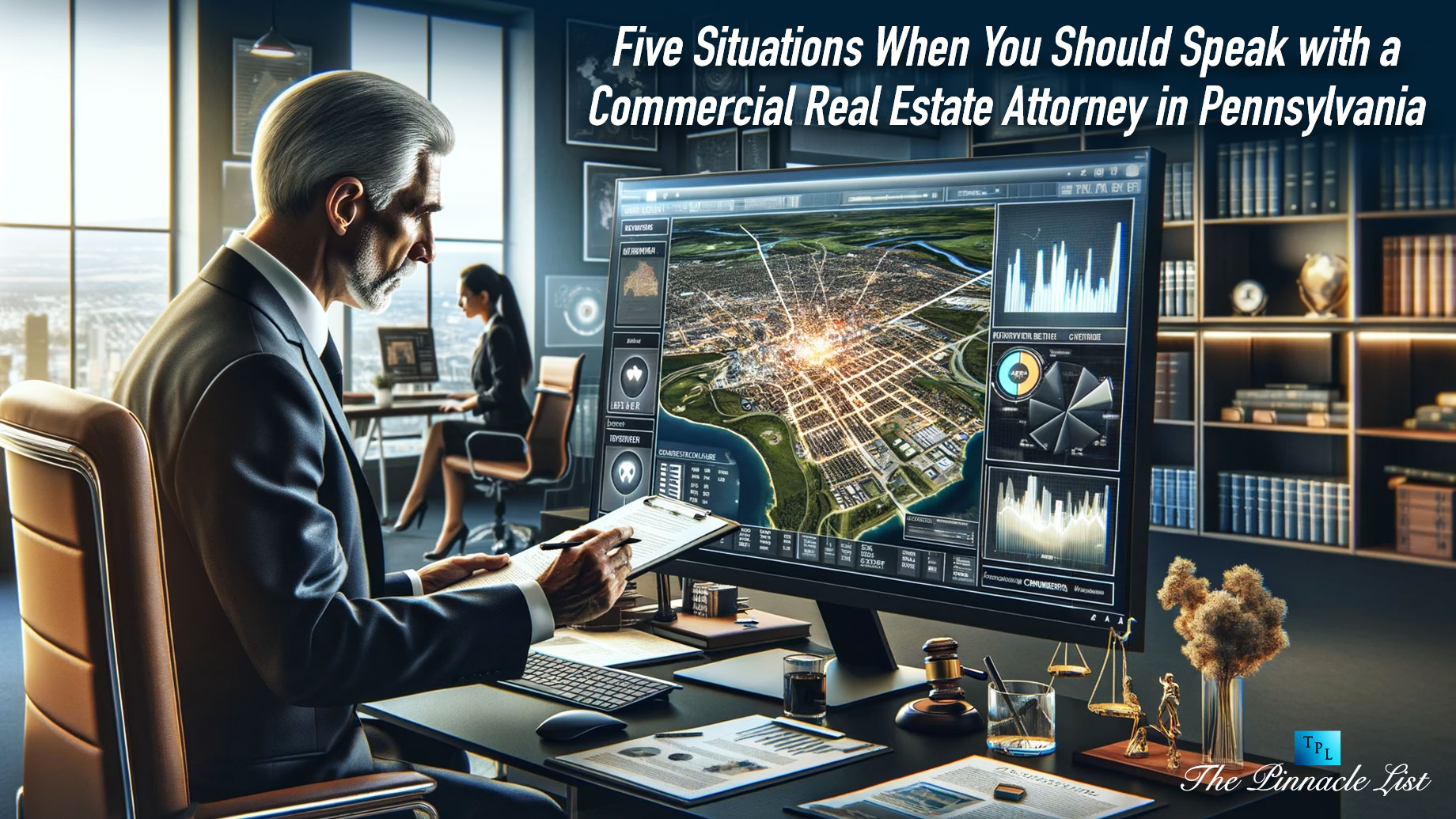
The Pennsylvania real estate market is booming. Businesses across industries are vying for prime locations, development projects are on the rise, and complex lease agreements are being signed daily. It’s an exciting time, but amidst the buzz, one question might nag at you: Am I protected?
Imagine this: you’re a small business owner, finally ready to invest in your own brick-and-mortar location. You find the perfect storefront, lease negotiations seem straightforward, and you’re ready to toast to a new chapter. Then, a zoning issue arises, your lease terms become ambiguous, or a hidden environmental liability surfaces. Suddenly, what felt like a dream turned into a legal nightmare.
This isn’t an uncommon scenario. The intricacies of commercial real estate transactions can be daunting, even for seasoned business professionals. That’s where a commercial real estate attorney comes in. Think of them as your trusted advisor, legal shield, and deal-closing champion.
But how do you know when it’s time to bring in this real estate legal expert? Here are five situations where consulting a commercial real estate attorney in Pennsylvania is not just advisable, but essential:
1. Negotiating and Drafting Contracts
A commercial real estate lease is more than just a piece of paper. It’s a binding agreement that dictates your rights and responsibilities for years to come. An attorney can dissect the terms, negotiate favorable clauses, and ensure your interests are protected. They can also draft watertight purchase agreements, development contracts, and financing documents, eliminating loopholes and safeguarding your financial security.
2. Understanding Zoning and Land Use Regulations
Pennsylvania has a complex web of zoning and land use regulations that vary by municipality. A qualified commercial real estate attorney can decipher these regulations, advise you on potential zoning hurdles, and help you obtain necessary permits and approvals. This minimizes delays, prevents costly fines, and ensures your project adheres to legal requirements.
3. Environmental Due Diligence and Risk Mitigation
Environmental liabilities can lurk beneath the surface of even the most promising property. An attorney can guide you through thorough environmental due diligence, including site inspections, title searches, and regulatory compliance assessments. This mitigates your risk of inheriting hidden contamination issues and costly clean-up obligations.
4. Resolving Property Disputes and Litigation
Unfortunately, real estate transactions don’t always go smoothly. Lease disputes, boundary disagreements, construction conflicts, and property damage claims can arise unexpectedly. Having an attorney on your side provides you with expert representation and negotiation skills, protects your rights, and minimizes your losses.
5. Structuring Transactions for Tax Optimization
Real estate transactions can have significant tax implications. An attorney with expertise in real estate tax law can help you structure your deal in a way that minimizes your tax burden. This could involve utilizing depreciation deductions, tax-advantaged financing options, or specific holding strategies.
Remember, consulting a commercial real estate attorney is an investment, not an expense. Their proactive guidance can prevent costly mistakes, save you time and money in the long run, and give you the peace of mind to focus on what matters most – growing your business.
Don’t let the complexities of Pennsylvania’s commercial real estate market hold you back. By partnering with a qualified attorney, you can navigate the process with confidence, secure your interests, and unlock the full potential of your real estate endeavors.
FAQs
- What types of commercial real estate transactions do attorneys handle?
- Commercial real estate attorneys can assist with a wide range of transactions, including purchases, sales, leases, refinancing, development projects, zoning issues, and property disputes.
- How much does it cost to hire a commercial real estate attorney?
- Attorney fees can vary depending on the complexity of the transaction, the attorney’s experience, and your location. Be sure to discuss fees upfront and obtain a written fee agreement.
- How do I find a qualified commercial real estate attorney in Pennsylvania?
- Start by asking for recommendations from trusted advisors, such as your accountant or financial advisor. You can also search online directories or contact your local bar association for referrals.
Remember, investing in the right legal guidance can make all the difference in your commercial real estate journey. Don’t go it alone – consult a qualified attorney and turn your real estate ambitions into reality.